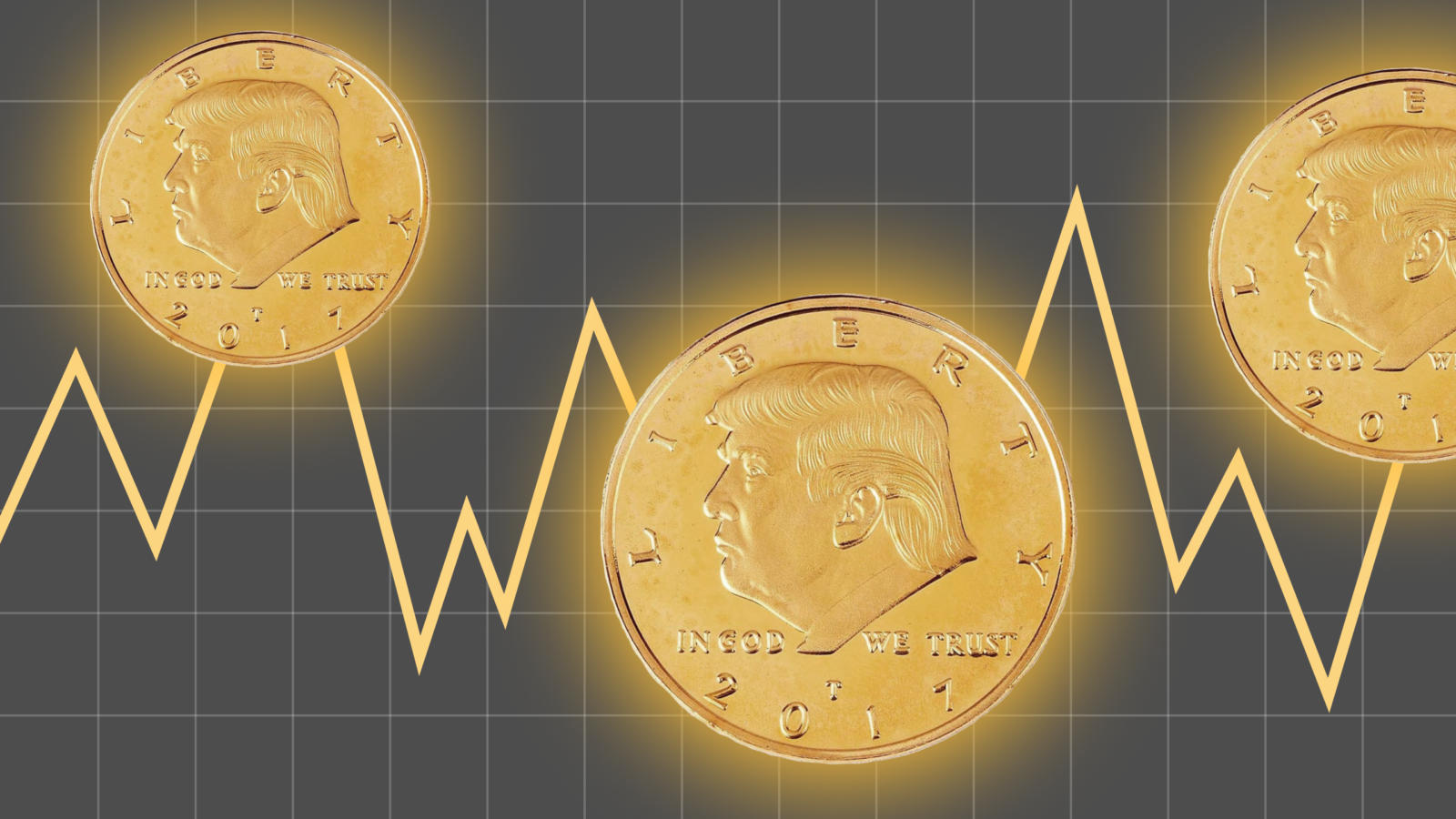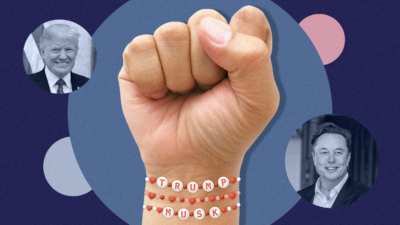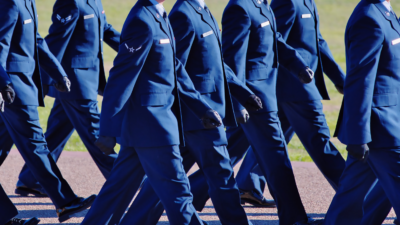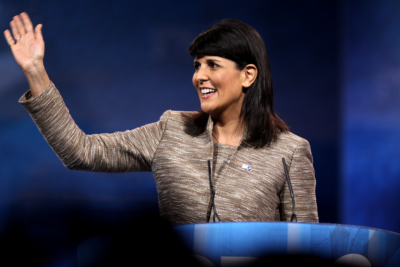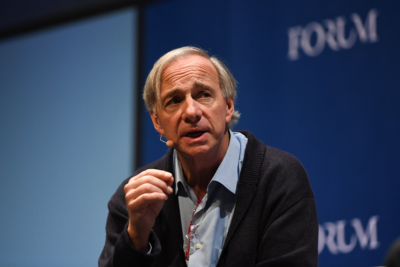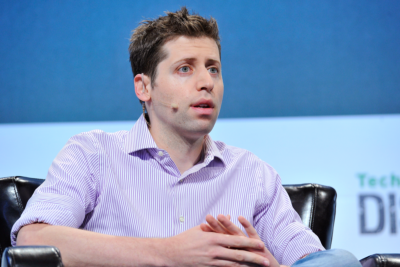A War of Words Erupts Between Milley and Trump Over China
The release of “Peril” led to an extended war of words between U.S. Army General Mark Milley and former U.S. president Donald Trump.

Sign up to unveil the relationship between Wall Street and Washington.
The clash pulls the curtain back on the details of Jan. 6.
A book has ruffled quite a few tailfeathers in U.S. political circles.
“Peril,” the last in a defining series on the Trump presidency by journalists Bob Woodward and Robert Costa, has, in the days since its release in September, led to an extended war of words between U.S. Army General Mark Milley and former U.S. president Donald Trump.
What’s at issue? The nature of communications Milley engaged in with China before and after the Jan. 6 attack on the U.S. Capitol, which disrupted the joint session of Congress that was affirming the results of the presidential election that put President Biden in the White House.
According to the 512-page book, Milley, the former chairman of the Joint Chiefs of Staff, reached out twice to his Chinese counterpart to reassure him that America was stable and that it would not suddenly go to war with China.
Specifically, Milley was concerned about what Trump might do in his final weeks as president, according to the book, going so far as to ask his senior officers to take a precautionary “oath” promising that they would not act on any order given by Trump to launch nuclear weapons unless Milley was aware and directly involved.
That single detail shows just how delicate and complicated the situation was during the U.S. presidential transition of power.
The conversations between Milley, at the time America’s top military chief, and Gen. Li Zuocheng of the People’s Liberation Army, were intended to be de-escalatory, Milley explained in subsequent interviews. The first of the calls occurred on Oct. 30, 2020, just before the hotly contested U.S. presidential election took place. The second one happened on Jan. 8, 2021, two days after the attack on the Capitol, during which Milley reassured his uncertain Chinese counterpart, “We are 100 percent steady. Everything’s fine. But democracy can be sloppy sometimes.”
Milley similarly spoke with heads of defense in the UK, Russia and Pakistan, among others, to quell fears over the events of Jan. 6, according to the book by Woodward and Costa. All of his communications, Milley said, amounted to providing reassurances of America’s strength and power and that things were fully under control during the nation’s Trump-Biden transition (which, the book makes clear in hundreds of interviews, was not the case).
Since the Woodward-Costa book release, Trump has decried Milley’s actions, suggesting that the general should be executed for “treason” in response to the accounts that Milley told his Chinese counterpart “If we’re going to attack, I’m going to call you ahead of time. It’s not going to be a surprise.”
According to one U.S. defense official, that’s not exactly how it went down, but the defense official did confirm that Milley made it clear the U.S. would not attack China without some kind of warning, whether through military, administrative or diplomatic channels.
Since learning of Milley’s unvarnished opinion of him – including how he believed Trump was looking for what Milley called a “Reichstag moment,” a reference to how the Nazis consolidated power under Hitler – and may yet be still, Trump has been apoplectic in recent days.
Referencing Milley’s calls to China in the run-up to the 2020 election and just after the insurrection, Trump told one media outlet, “If it is actually true, which is hard to believe, that he would have called China and done these things and was willing to advise them of an attack, or in advance of an attack, that’s treason. For him to say that I was going to attack China is the most ridiculous thing I’ve ever heard.”
In further interviews and social media posts, Trump has continued to heap criticism on Milley, calling him a “woke train wreck” and saying Americans should “celebrate” his recent retirement as chairman of the Joint Chiefs. He also reiterated Milley would have been executed for treason in “times gone by,” prompting U.S. Special Counsel Jack Smith – who is leading federal criminal indictments against Trump – to cite the remarks as a fresh reason to gag the former president ahead of trial.
The smattering of swipes and counterswipes have continued into this month, with some Trump supporters now vociferously backing Trump’s call for Milley’s execution (yes, really, see television footage here.)
In his retirement address, Milley fired back, highlighting how America’s armed forces are “unique among the world’s militaries,” adding, “We don’t take an oath to a country. We don’t take an oath to a tribe. We don’t take an oath to a religion. We don’t take an oath to a king, or a queen, or to a tyrant or a dictator – and we don’t take an oath to a wannabe dictator.”
The accusations of treason apparently go both ways. According to the Woodward-Costa book, Milley caught wind of plans to overturn the 2020 U.S. election and took steps to safeguard the nation ahead of the insurrection, believing Trump to be an “unstable commander in chief” who Milley feared “had engaged in a treasonous violation of his oath to use the military improperly.”
Hoping for fewer accusations of treason in 2024.
The views expressed in this op-ed are solely those of the author and do not necessarily reflect the opinions or policies of The Daily Upside, its editors, or any affiliated entities. Any information provided herein is for informational purposes only and should not be construed as professional advice. Readers are encouraged to seek independent advice or conduct their own research to form their own opinions.
